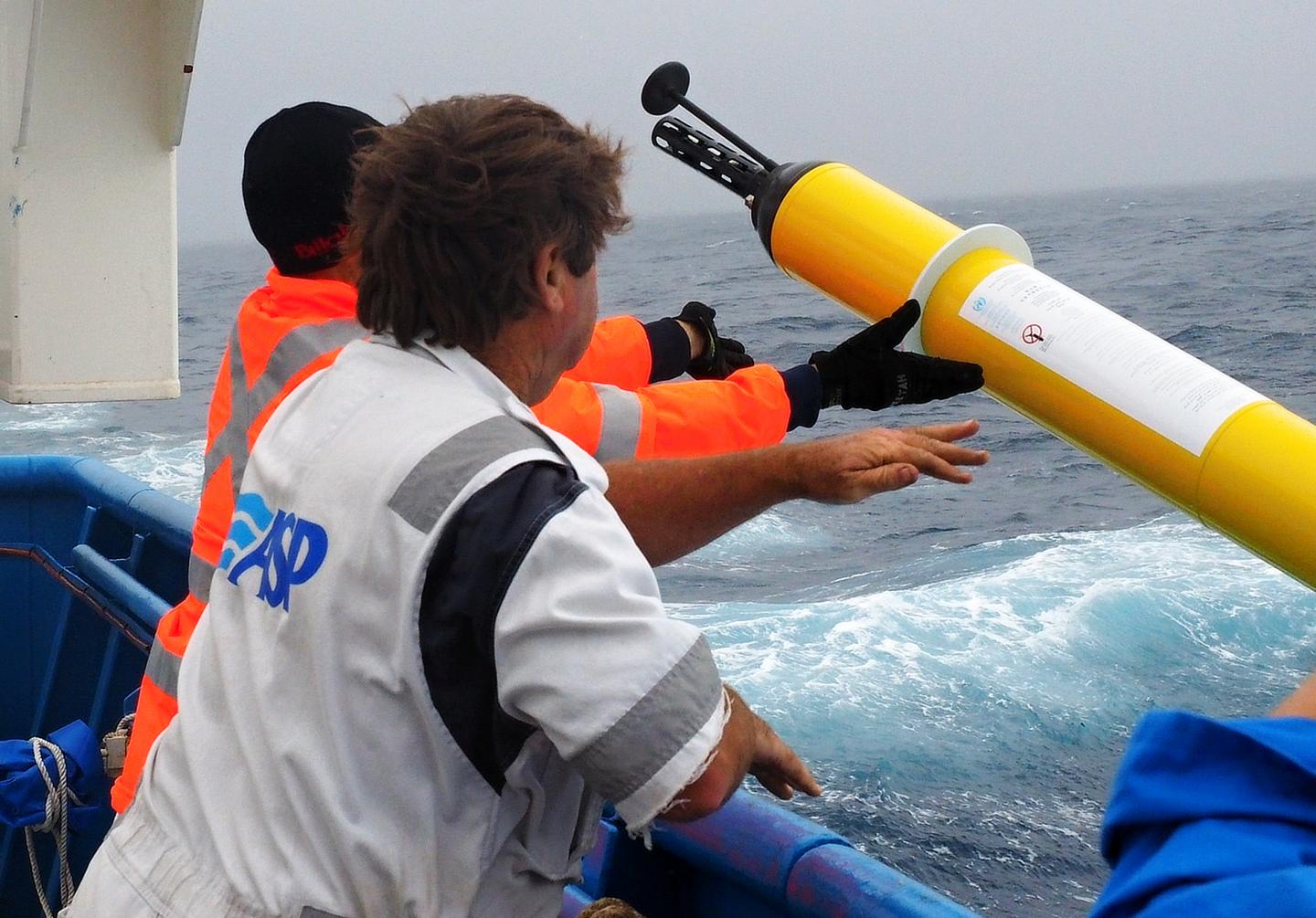
Credit: MNF + Stewart Wilde
An innovative use of instruments that measure the ocean near Antarctica has helped Australian scientists to get a clearer picture of how the ocean is melting the Antarctic ice sheet.
Until now, most measurements in Antarctica were made during summer, leaving winter conditions, when the sea freezes over with ice, largely unknown.
But scientists from IMAS and the CSIRO, supported by ACE CRC, the ARC-funded Antarctic Gateway Partnership and the Centre for Southern Hemisphere Oceans Research (CSHOR), developed a novel mission that allowed year-round measurements to be collected near the Totten Glacier, a fast-melting glacier in East Antarctica.
They used instruments known as ARGO floats that are typically designed to drift with ocean currents and measure ocean temperature and salinity profiles.
For this mission, however, the floats were designed to “park” on the sea floor between profiles so they stayed in the region and did not drift away, and vital data collected during ice-covered winter months were stored and uploaded via satellite later in ice-free conditions.
The study published in the journal JGR Oceans revealed for the first time that deep water driving melting at the base of the Totten Glacier is warmer and in a thicker layer during winter and autumn than during spring and summer.
Lead author Alessandro Silvano, from IMAS, said this means the Totten Glacier might melt more rapidly in winter than summer, and that summer measurements might under-estimate the flow of warm water to the ice shelf.
“We had a nervous wait during the first winter, wondering if the floats would survive the icy winter conditions after being parked on the rough sea floor for long periods,” he said.
“When spring arrived and the sea ice started to melt we were very excited to see that the floats returned and transmitted the winter data.
“We immediately noticed that the ocean was warmer in autumn and winter than found in our previous summer measurements.
“The new measurements confirm that this part of East Antarctica is exposed to warm ocean waters that can drive rapid melt, with the potential to make a large contribution to future sea level rise.
“The floats also provided new measurements of ocean depth in the region, revealing a deep trough that allows warm water to approach the glacier year-round,” Mr Silvano said.
CSIRO co-author Dr Steve Rintoul from CSHOR said the new measurements of ocean depth, temperature and salinity will help improve models used to predict the Antarctic’s contribution to sea level rise.
“Crashing sensitive oceanographic instruments into the sea floor isn’t generally recommended,” he said.
“But these results show that profiling floats can be used in novel ways to measure the ocean near Antarctica, a critical blind-spot in the global ocean observing system.
“Much work remains to be done and more measurements are needed to assess the vulnerability of the ice shelf to changes in the ocean, including in the ocean beneath the floating Totten Glacier.
“New technologies, like the autonomous underwater vehicle (AUV) recently acquired by the University of Tasmania, will be needed to fill this gap,” Dr Rintoul said.
###
Media Contact
Andrew Rhodes
[email protected]
Related Journal Article
http://dx.




